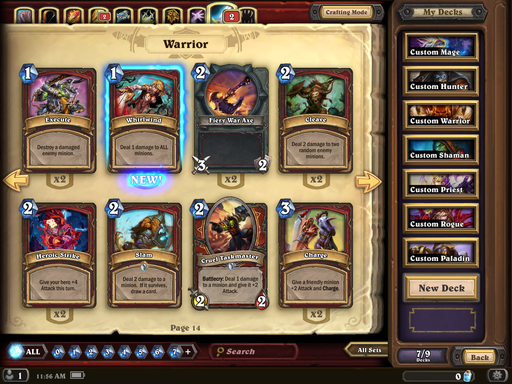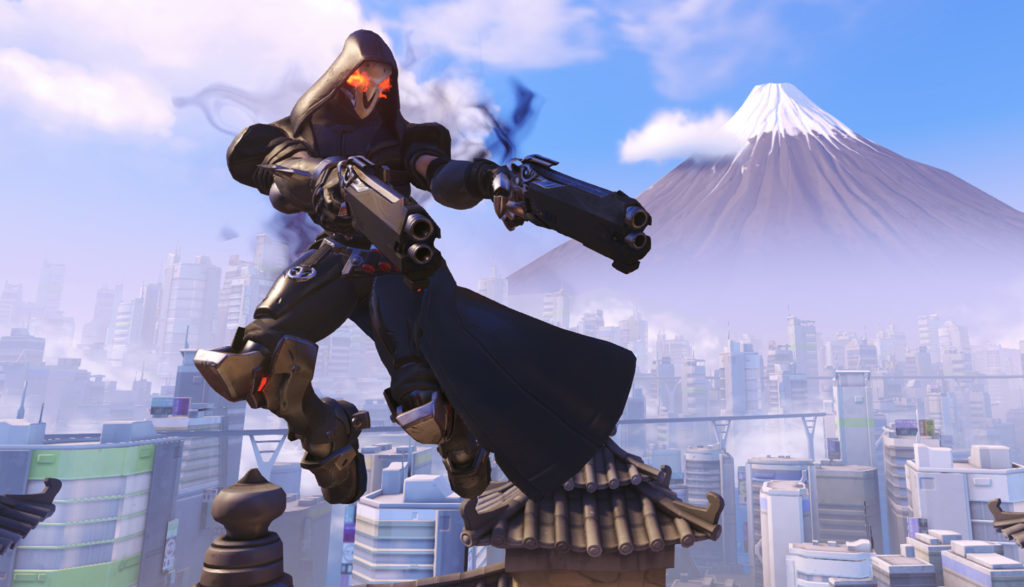SuperData has just released its digital video game revenue data for the month of August. Sales are up, there’s success “in the cards” for publishers and a change in Chinese spending habits offers new revelations for pay-to-play MMOs.
August 2016: Digital Video Game Sales
It was a strong month for the global video game market, grossing $6.1 billion in August—an 11 percent increase year-over-year. This growth was fueled by successful releases across console, PC and mobile platforms although the charts were topped by existing games, League of Legends, Call of Duty: Black Ops III and Pokémon GO. While premium PC, console, digital revenue and mobile sales all experienced growth in August, pay-to-play MMOs and social games saw a modest decline over last year.
 On PC, League of Legends topped the charts, no doubt thanks to a major sale on champions and skins in August. Meanwhile, World of Warcraft‘s Legion expansion drove the popular title to the number two spot, followed by Crossfire and Dungeon Fighter Online. Overwatch held its position at number five. Although PC digital sales grew 21 percent to $401 million, pay-to-play MMO sales declined 4 percent to $226 million.
On PC, League of Legends topped the charts, no doubt thanks to a major sale on champions and skins in August. Meanwhile, World of Warcraft‘s Legion expansion drove the popular title to the number two spot, followed by Crossfire and Dungeon Fighter Online. Overwatch held its position at number five. Although PC digital sales grew 21 percent to $401 million, pay-to-play MMO sales declined 4 percent to $226 million.
Hello Games’ No Man’s Sky came in at number six for PC, generating $78 million in digital sales in its opening month across platforms. While the much-anticipated (although highly-criticized) open world title also earned the second spot on the console charts, controversy over marketing vs. finished product may paint a different picture come September. Black Ops III held secured the perimeter around its number one spot, while Grand Theft Auto V stole the number three spot for console, dropping FIFA 16 down to number four. Madden NFL 17, which launched near the end of August, came in at number five but September sales may paint a different picture.
As for mobile, Pokémon GO and Monster Strike hold firm at number one and two respectively, followed by Mobile Strike and Clash of Clans. A month after its July release, Pokémon GO, earning a whopping $204 million still managed to push the mobile market to $3.04 billion in revenue, 16 percent higher than the same month last year. Nintendo is expected to continue its strong push onto mobile with Super Mario Run.
Collectible Card Games Prove To Be A Strong Spin-Off Opportunity
As MOBA and shooter titles have begun to saturate the industry, publishers are turning to franchise spin-offs to generate additional income. Collectible card games are a $1.3 billion market and one of the fastest-growing segments among free-to-play. Total market size is expected to increase by 8 percent in the next two years, SuperData estimates. Fueled by the success of Hearthstone, publishers are tapping into their IPs to create collectible card games of their own.
Upcoming titles in this lucrative genre include The Elder Scrolls Legends by Bethesda Softworks and GWENT, a spinoff of The Witcher 3 by CD Projekt Red. “The genre’s potential has also prompted some very unconventional experiments,” notes SuperData CEO, Joost van Dreunen in the report. “For example, Electronic Arts recently announced plans to create a mobile card game based on their first-person shooter franchise Titanfall.”

Chinese Spending Habits Take A Surprising Turn
It has often been thought that Chinese gamers, who typically pay for MMOs by the hour, would not be willing to pay for a video game upfront. That outlook is about to change, thanks to Activision Blizzard titles, Overwatch and World of Warcraft‘s Legion expansion. Up to 40 percent of full game downloads of Overwatch in August can be attributed to Chinese sales, SuperData reported.
“Overwatch and World of Warcraft show shifting Chinese spending habits,” explains van Druenen. “China’s games market may be dominated by free-to-play MMO and mobile titles, but Overwatch’s success indicates the potential for premium games in the country is growing.” NetEase, who sells these titles in the Chinese market, generated $382 million, excluding royalties to Activision Blizzard. NetEase changed their payment policy for World of Warcraft with the roll out of the title’s new Legion expansion. Players are now required to pay upfront for full monthly subscriptions, rather than by the hour, and as a result NetEase-processed revenue up to $37 million in August compared to $8 million in July.
“The success of both titles goes against the assumption that Chinese gamers will never warm up to paying for games upfront, and provides evidence that it is possible to convince Chinese consumers to purchase high-quality, full-priced games,” van Druenen concluded. “Whether this will fundamentally change the market remains to be seen, as local gaming behemoth and NetEase rival, Tencent is still sticking to free-to-play.”

